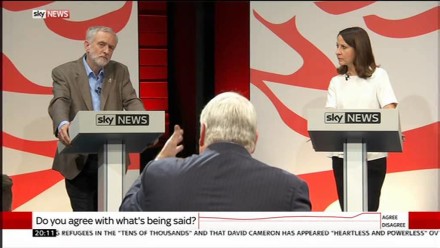
It was a “poisonous atmosphere” at the Young Labour conference this weekend, according to reports. Infighting, it seemed, was top of the agenda. The factionalism gripping the Labour party since Jeremy Corbyn’s election has, in some ways, replicated itself at the youth level. Newspaper stories about fighting, alleged bullying and name calling throughout the party, often manifesting in a misogynistic form, is in no shortage. The question is: how can Labour get past it?
Aside from stark disagreement over foreign policy, there’s a clear fault line in the party to which far too many people subscribe: the left don’t care about electability, only the right of the party do. The former clutches at idealistic beliefs, while the latter is willing to do whatever it takes to form the next government; it’s the ‘trots’ vs. the Blairites, the pragmatists vs. the idealists. The battle between ‘left’ and ‘right’ takes many different forms but can be reduced into one dichotomy: probity vs. power. But this clear-cut schism – like so many in politics – is false.
There are shortcomings on all sides of this supposedly dichotomous debate. With little real desire or effort to understand why Jeremy Corbyn won the leadership election – and why he did so with such a decisive victory – anti-Corbynites are quick to dismiss the spark Corbyn ignited as nothing but heady idealism. A small, vocal section are happy to undermine the leadership by briefing the press – the thirst for winning within the party means they’re willing to lambast the Labour leader in public.
The term “moderate” is a conveniently woolly one that props up this electability narrative: Labour moderates are rational and levelheaded. Before any concrete policies have even been announced, this group is convinced that Corbyn-led Labour is doomed to fail. But after failing to get any of their candidates elected, it’s hard to identify what their winning strategy would be.
But Labour’s problems don’t start and end with the right of the party. The left needs to be clear that the dichotomies are false; you can have a principled stance and still be in power. To accept that electability isn’t a priority is akin to thinking your ideas and the policies that will spring from them aren’t good enough. Meanwhile, the small number who waste time labelling Labour opponents ‘Tories’ or calling for deselection are shutting down debate and wasting energies that should be spent on campaigning. The way a very small number of MPs rail against Corbyn is frustrating but throwing insults back is a self-defeating response.
The challenges are big, but they always are when you’re in opposition. Labour needs to sift their economic plans into a clear message that will appeal to the majority of the public and that the whole party can unite behind. Then they need to repeat it over and again.
This is not impossible. Current divides spearheaded by a noisy minority ignore the potential space for cooperation and common ground. Take Liam Byrne, most would describe himself as a “moderate”, but he called “time on neo-liberalism” back in November. There is space for agreement.
Democratic politics isn’t about launching vicious public attacks on people who carry the same political party card as you. We know all too well that public opinion isn’t static – it is, for many reasons, constantly changing. A democratic political system is about persuading the public to vote – to vote for you and your ideas. The rowdy battle between the right and left drowns out the efforts of people who are getting things done and obscures the potential of this happening.
Change in possible. As Osborne readies his axe, preparing to bring it crashing down on the public services that survived his last attack, there will, sadly, be even more people left suffering. There is space for a viable alternative. For everyone to unite, campaign to get Sadiq Khan elected as mayor and for the local elections. We have different ideas but we all agree that we don’t want another Tory victory – what the country needs is Labour government in 2020. To achieve that, Labour must find a way to work together.




More from LabourList
A year in power: The cabinet on their proudest wins and favourite moments
Southwark leader race ‘to be re-run over rule breach claims’ as left-winger wins
Welfare vote: ‘Three options Rachel Reeves has to plug the fiscal gap’